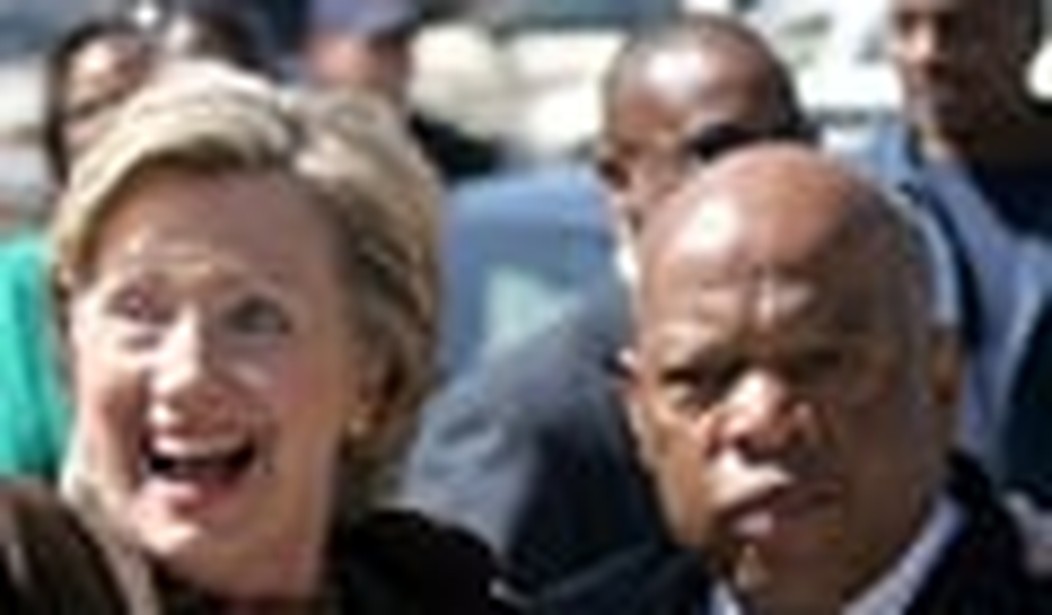As if the targeted jabs being exchanged between John McCain and Barack Obama weren’t enough, Hillary Clinton’s irrelevance grew three sizes today with the announcement that yet another superdelegate won’t let his personal support for her interfere with his party duties.
The New York Times reports that Georgia Rep. John Lewis, an old hand in the civil rights movement, will likely vote for Obama at the DNC because that’s what his constituents want. This comes shortly after fellow Georgian Rep. David Scott, another Clinton booster, pledged to do the same on behalf of his district.
Clinton’s diminishing hope to beat the Hope Candidate now rests on a trifecta of strategies. The first two are Texas and Ohio, where she still enjoys a slim lead over Obama and might still win enough delegates to stay competitive (even though his losses in those states would, at the same time, give him a proportional gain in delegates of his own). The third strategy is her ability to convince proxies like Lewis and Scott that casting autonomous votes for her will prevent an internecine conflict in the Party and decide the nomination without recourse to a messy brokered convention. But that’s precisely what Lewis and Scott are aiming to avoid by swaying with national opinion.
The element of race in this story is, once again, being needlessly overplayed. It’s elementary politics to ensure one’s re-election by not flouting the people capable of making it happen. A cynic might say that Lewis and Scott, both black, fear being labeled sell-outs to their skin color by serving as undemocratic kingmakers for Hillary–but then, that hardly stopped them from endorsing her in the first place, did it?
“Momentum” really isn’t the right word to describe Obama’s unexpected success in this election. His advantage is more the result of a series of reverse ripple effects–winning over wide circles of supporters, which then lead to increasingly smaller yet more influential ones. Superdelegates represent the epicenter to which which Team Hillary has decamped with a foolish “wait and see” attitude.
Christy Hardin Smith at Firedoglake says it’s all a guessing game until all the primaries are done: “A superdelegate vote is only as solid as the public opinion numbers of the moment. A pledge is not enforceable. Because most are elected officials, the public mood counts for how their votes are ultimately cast at the DNC in August, which is a long way off in terms of primary votes to come.”
At MyDD, Jonathan Singer writes: “Now I think that Clinton could potentially come closer to erasing Obama’s pledged delegate lead. I really do. But that would entail running a smarter pledged delegate campaign. No more overlooking caucuses. No more staying out of states until the Saturday before election day. And no more suggesting that superdelegates should reject the will of actual voters, both because that strategy isn’t working and because it’s counterproductive in terms of turning off actual voters.”
Josh Marshall at Talking Points Memo is also skeptical of Clinton’s strategy, which he calls “audacious” and “unrealistic”: “The super delegates who are gettable for Clinton by loyalty, conviction or coercion are already got. And enough’s been seen of both candidates for everyone to be more than acquainted with them. The ones who remain — who make up roughly half the total — are waiting to see who the winner is.”
Michael Weiss is the New York Editor of Pajamas Media. His blog is Snarksmith.









Join the conversation as a VIP Member